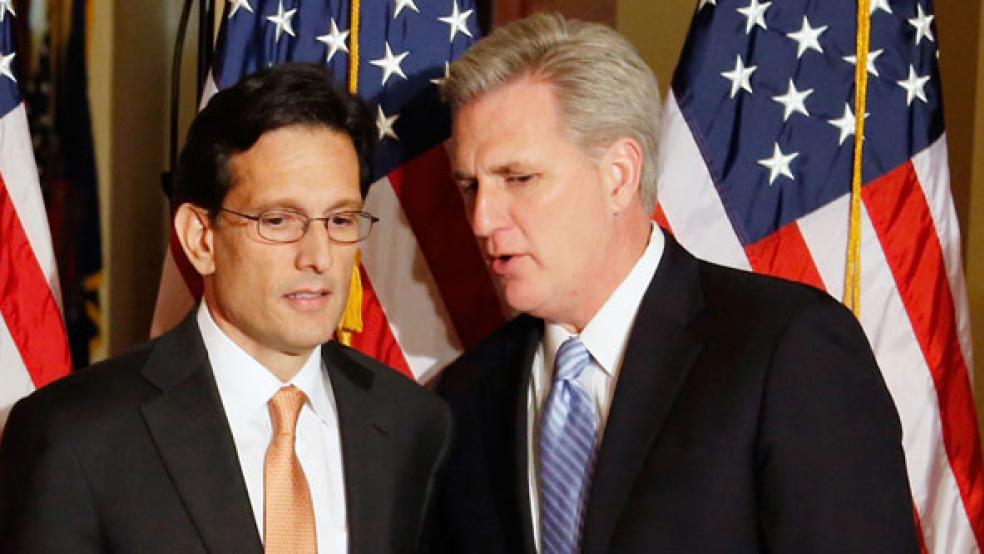It used to be that think tanks did the bidding of lawmakers. They cranked out research papers to back the policies getting announced on Capitol Hill.
But it now looks as though lawmakers are stuck kowtowing to outside groups such as the Heritage Foundation and the Club for Growth.
The latest example came Wednesday from the House GOP “Young Guns” of Majority Leader Eric Cantor, R-Virginia., and Whip Kevin McCarthy, R-Calif.
The duo had been trying to rally support for a floor vote on the "Helping Sick Americans Now Act," which would have taken $3.6 billion from Obamacare to a program that helps provide health insurance coverage to Americans with pre-existing conditions.

They pulled the vote, after failing to get adequate support within their own caucus. It was a botched attempt to show the softer side of conservatism. “We in the House remain committed to putting our conservative principles first to help people first,” Cantor said Wednesday morning when discussing the measure.
The debacle also paints the young guns as part of the old guard, removed from the base of several dozen lawmakers who view almost all government expenditures as toxic for the economy. These lawmakers—including Jim Jordan of Ohio, Raul Labrador of Idaho, Tim Huelskamp of Kansas—increasingly drive the agenda, despite their relatively low status on the Capitol Hill food chain.
The same group blocked House Speaker John Boehner’s “Plan B” to settle the fiscal cliff, in addition to pushing GOP lawmakers to block relief for the victims of Superstorm Sandy.
So, what enabled them to kill this particular bill?
Outside groups that provide political cover for these Republican House members.
The Heritage Foundation’s political wing—Heritage Action—opposed the measure. It’s a sign of the power wielded by Jim DeMint, the South Carolinian who resigned his Senate seat to lead the conservative think thank.
The Club for Growth also called for a “nay” vote, telling congressmen in a letter last week that the bill “would further extend the federal government's role in healthcare.” As a player that funds challengers in GOP primaries, the club emphasized to lawmakers that shuffling money within Obamacare was inadequate: “Fiscal conservatives should be squarely focused on repealing Obamacare, not strengthening it by supporting the parts that are politically attractive.”
When the club’s president, Chris Chocola, spoke with The Fiscal Times, he noted that he had more influence with his current gig than his previous work as an Indiana congressman.
“Having the opportunity to support several candidates through our PAC,” Chocola said, “is more satisfying than being a single member with a single vote.”




